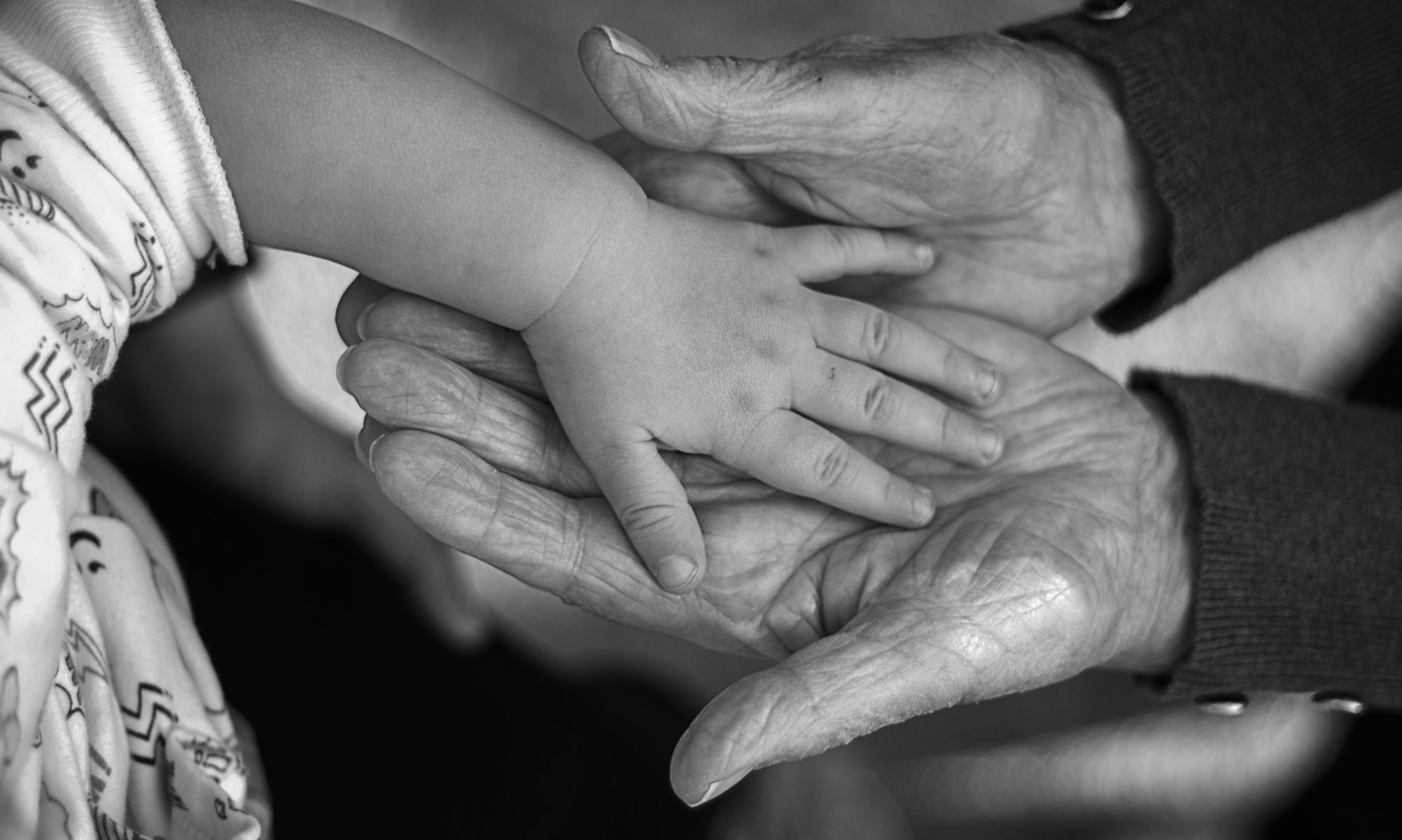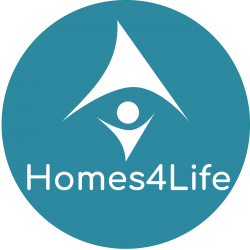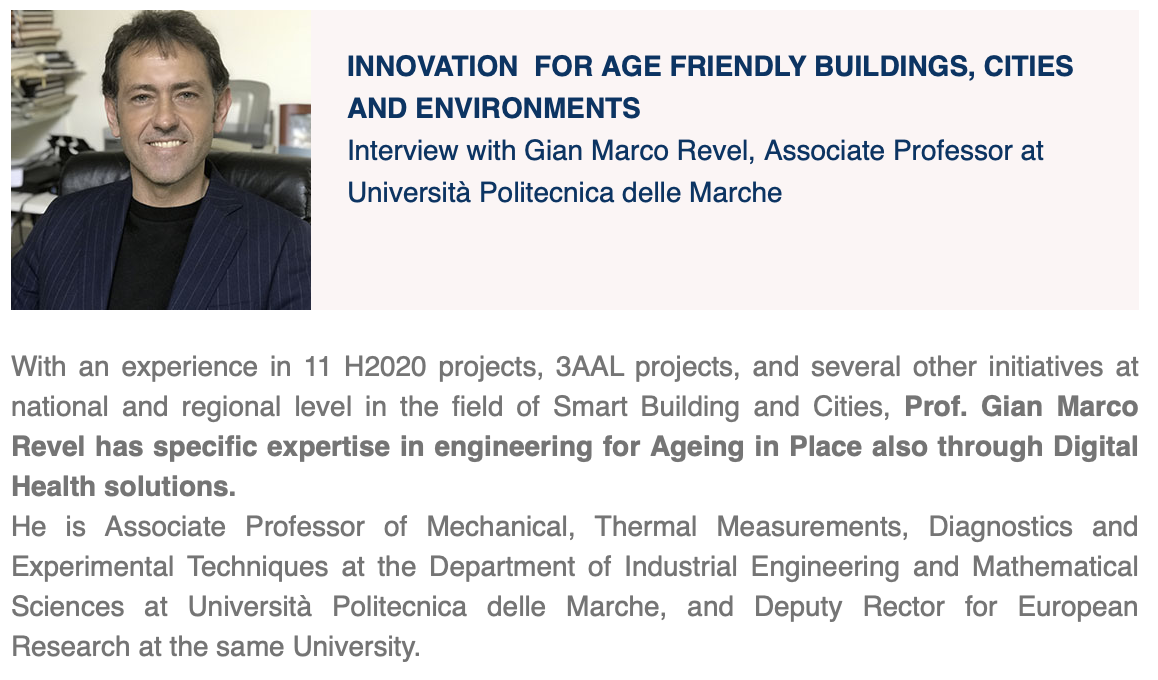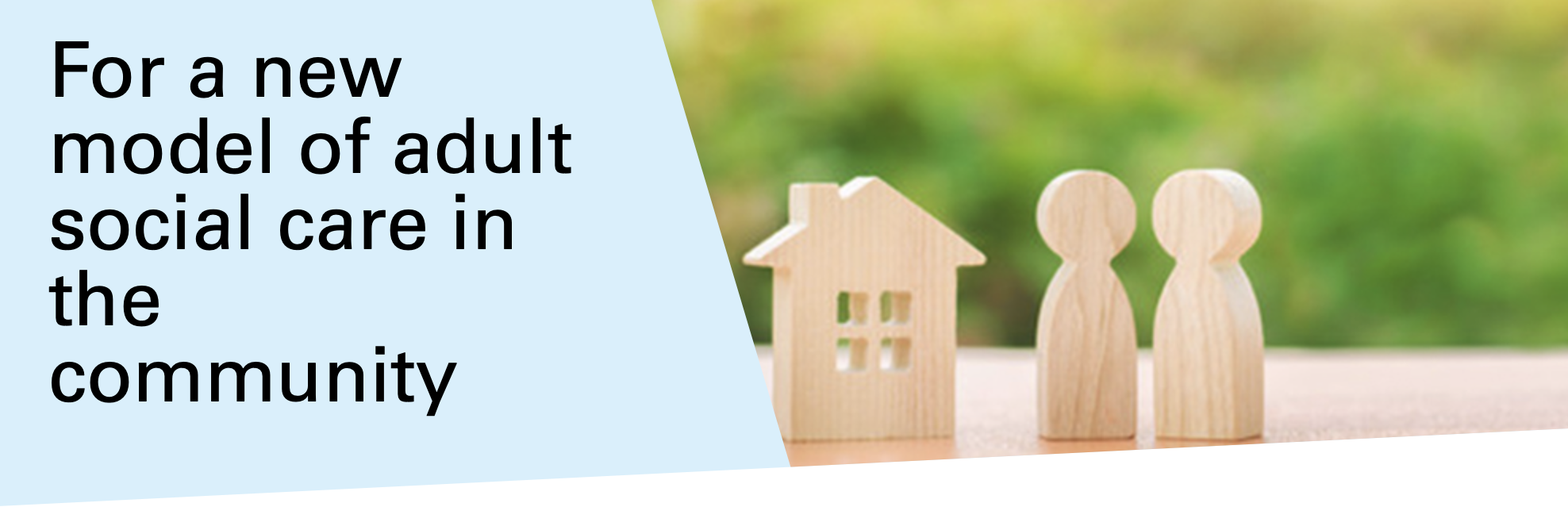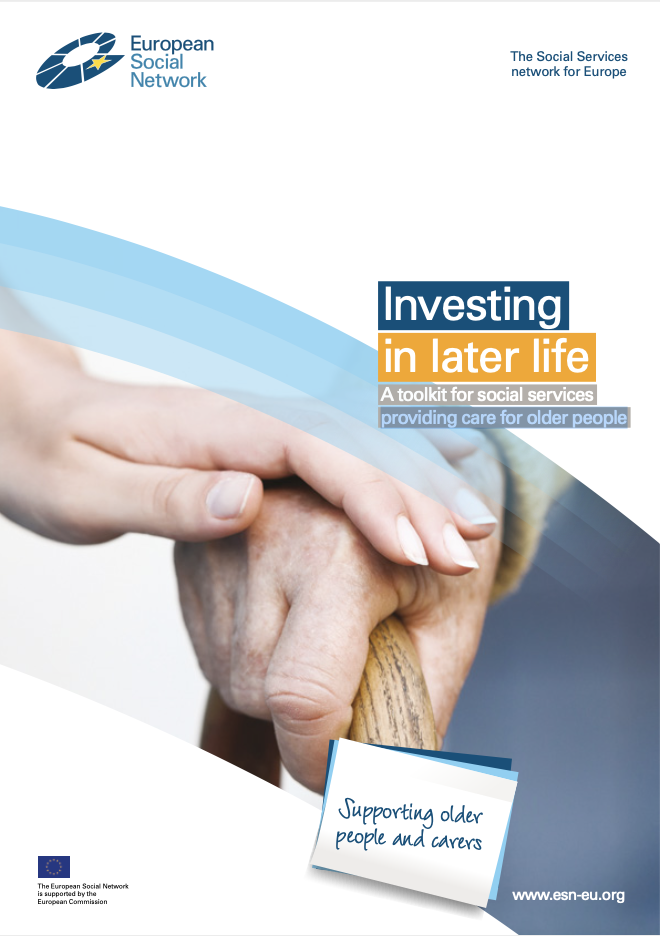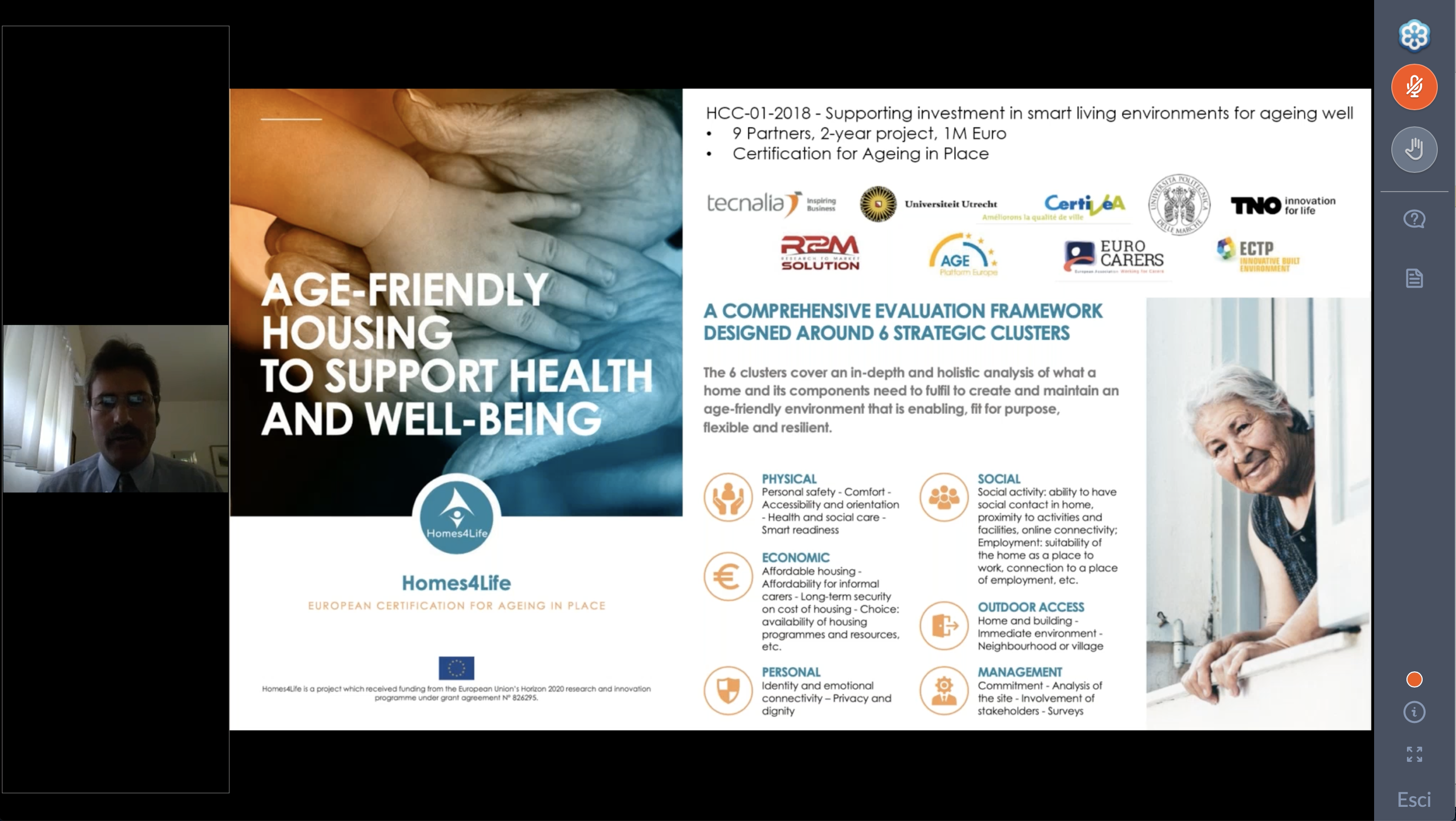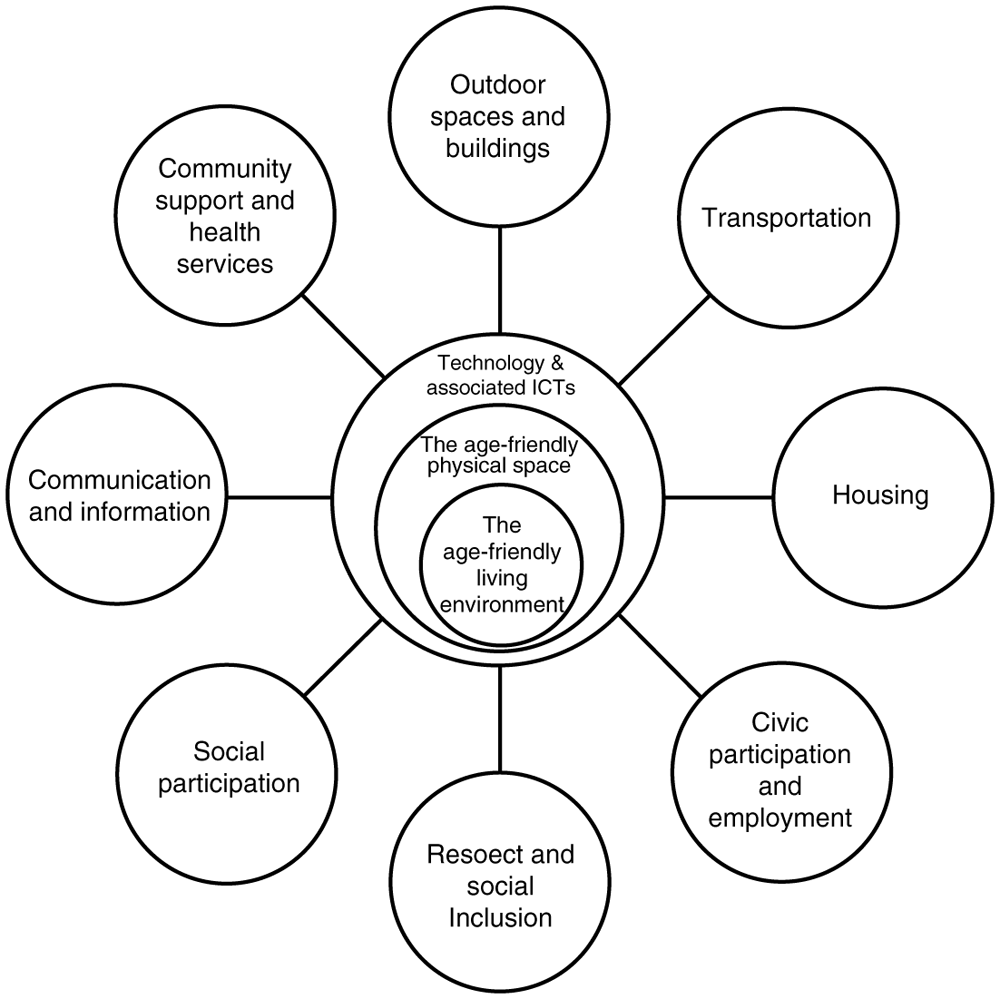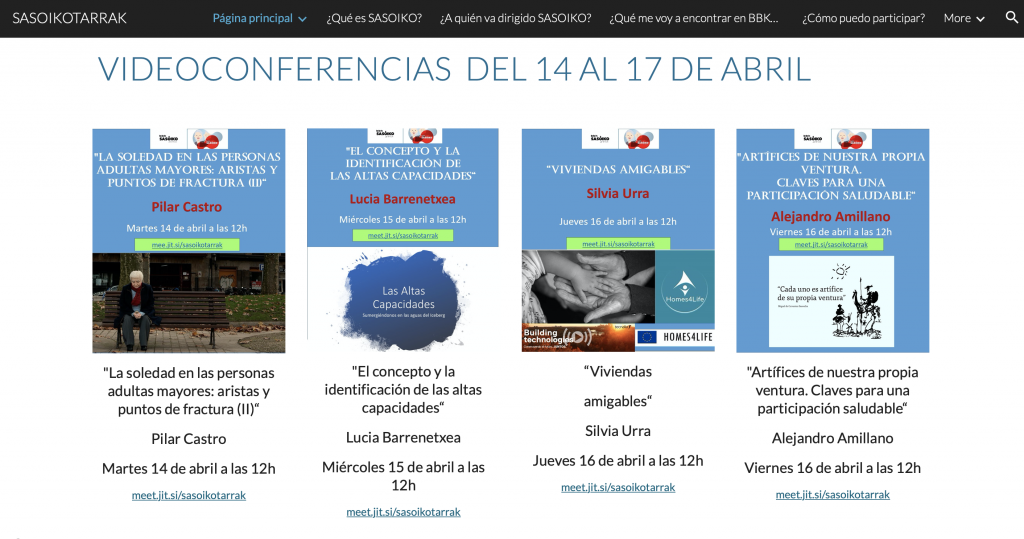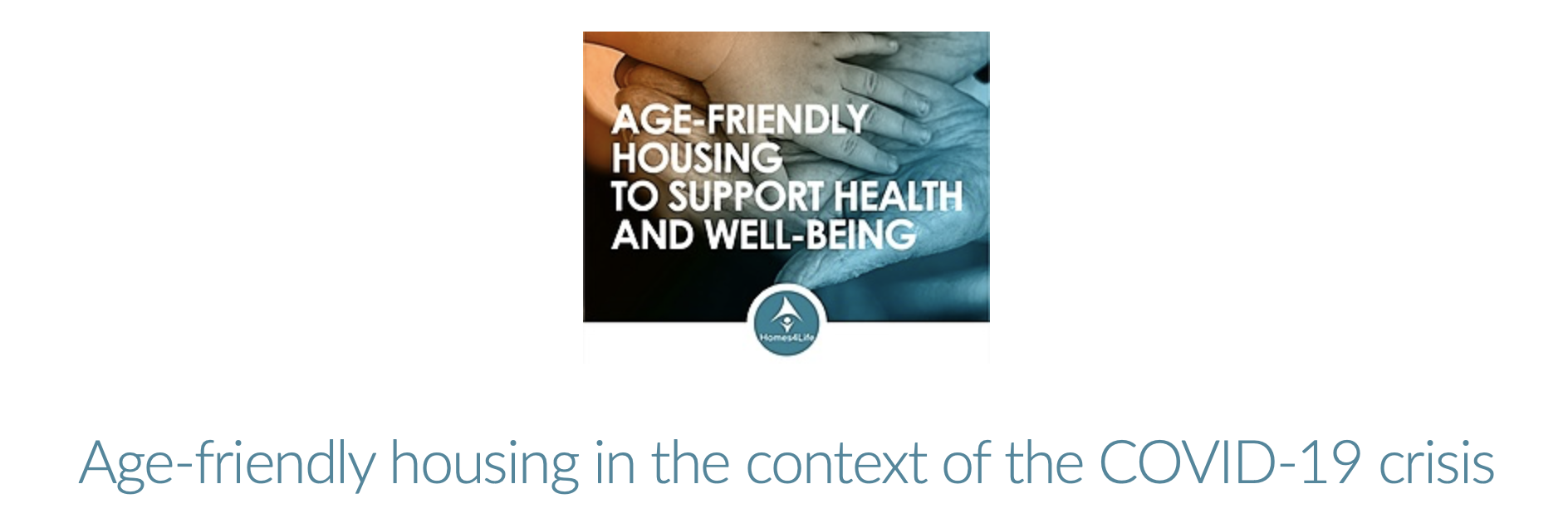
- Save the date ! Tue, Jun 30, 2020 11:00 AM – 12:00 PM CEST
- Register for free to this webinar here.
The measures aiming to contain the spread of COVID-19 could be resumed in the instruction “Stay At Home”. For many people living in poor housing conditions, this advice would not necessarily contribute to protect their health. For older persons who are at risk of severe outcomes if infected by the COVID-19, staying isolated at home could also result in worsen health status due to isolation, depression, or the absence of care.
The COVID-19 pandemic has also proven that congregated settings, including residential and care homes for older adults, put residents and workers at higher risk of contamination due to living in close proximity. Such settings are all the more inadequate to protect the residents’ health that many of them are living with underlying comorbidities. The reported figures show that older people living in residential care homes in Europe have suffered like no other group from the impact of the epidemic: on average, half of the deaths related to COVID-19 took place in care homes.
The COVID-19 crisis harshly reminded us that the current care models need to change. Our care policies and services must shift from crowded care residences to the provision of quality health and social care services in people’s homes and communities (see also this article in Spanish in the ‘El Independent’ journal). Such a shift would offer new opportunities to maintain social ties and a personal lifestyle that are core to our fulfilment and emotional wellbeing.
A preventive approach to health should also be reflected in our built environment. An age-friendly housing stock offers opportunities for all of us to be able to age in our communities while maintaining our intrinsic capacity and personal autonomy, as we engage in our later years.
In this one-hour webinar, the European project “Homes4Life” invites experts to discuss how an age-friendly approach to housing is more than ever needed to ensure people can age in healthy environments.
We are glad to announce that will be part of the conversation:
- Alice Pittini from Housing Europe, the European network of public, cooperative and social housing, that published “#StayAtHome and Europe’s housing crisis” commenting on how the COVID-19 crisis exposed the shortcomings of our housing policies;
- Holly Holder from the Centre for Ageing Better, a UK charitable foundation that wrote, in the middle of the pandemic, “Keeping people safe at home? What self-isolation means for those living in poor housing” elaborating on the issues faced by older people living in poor quality homes during the COVID-19 outbreak.
- Alfonso Lara Montero, Chief Executive at the European Social Network (ESN), the independent network for local public social services in Europe, will expand on how the COVID-19 crisis emphasised the role of care providers in creating supportive and enabling home environments.

![]()

We invite you to join us for this exciting conversation!
- When? 30 June, 11:00 to 12:00 CET
- Where? Via Go-To-Webinar (link sent after registration)
- How? Register for free at the following link
